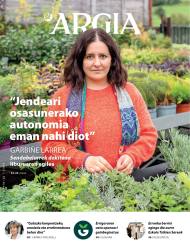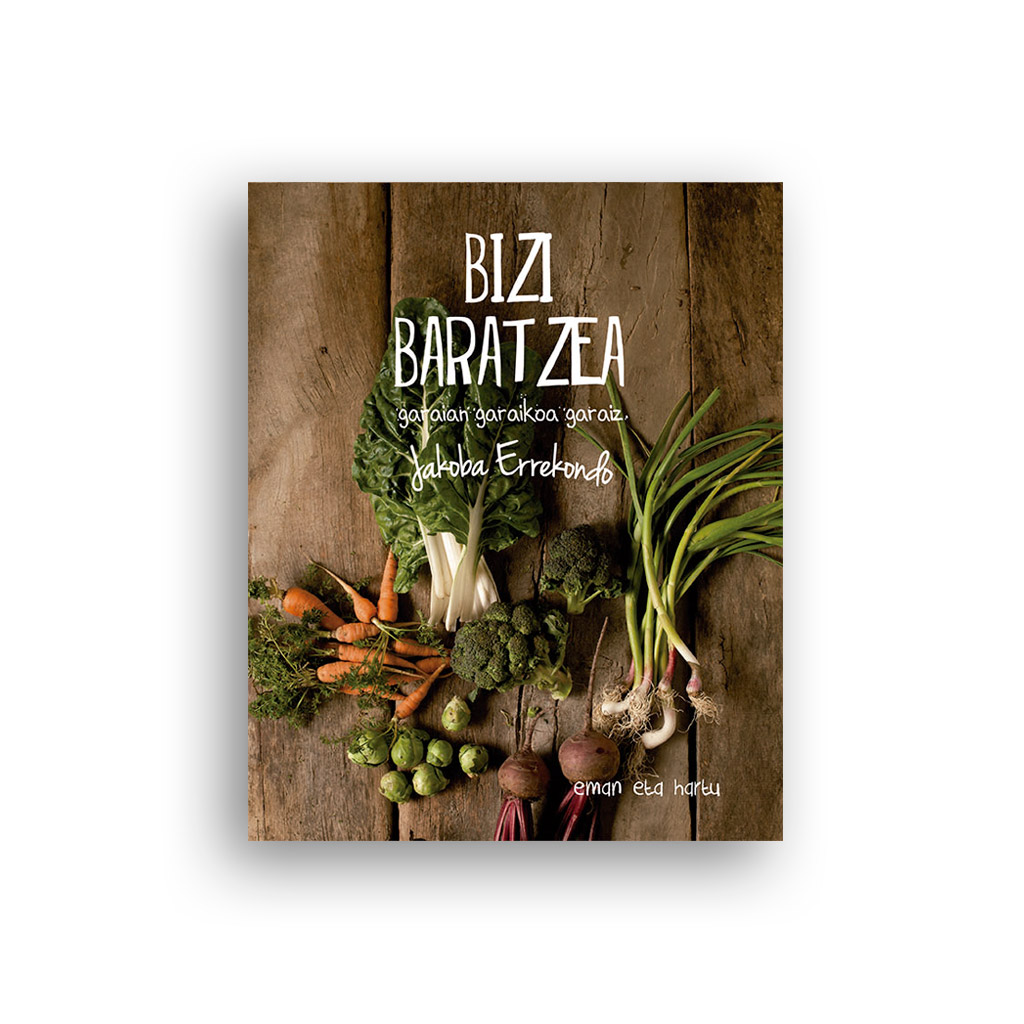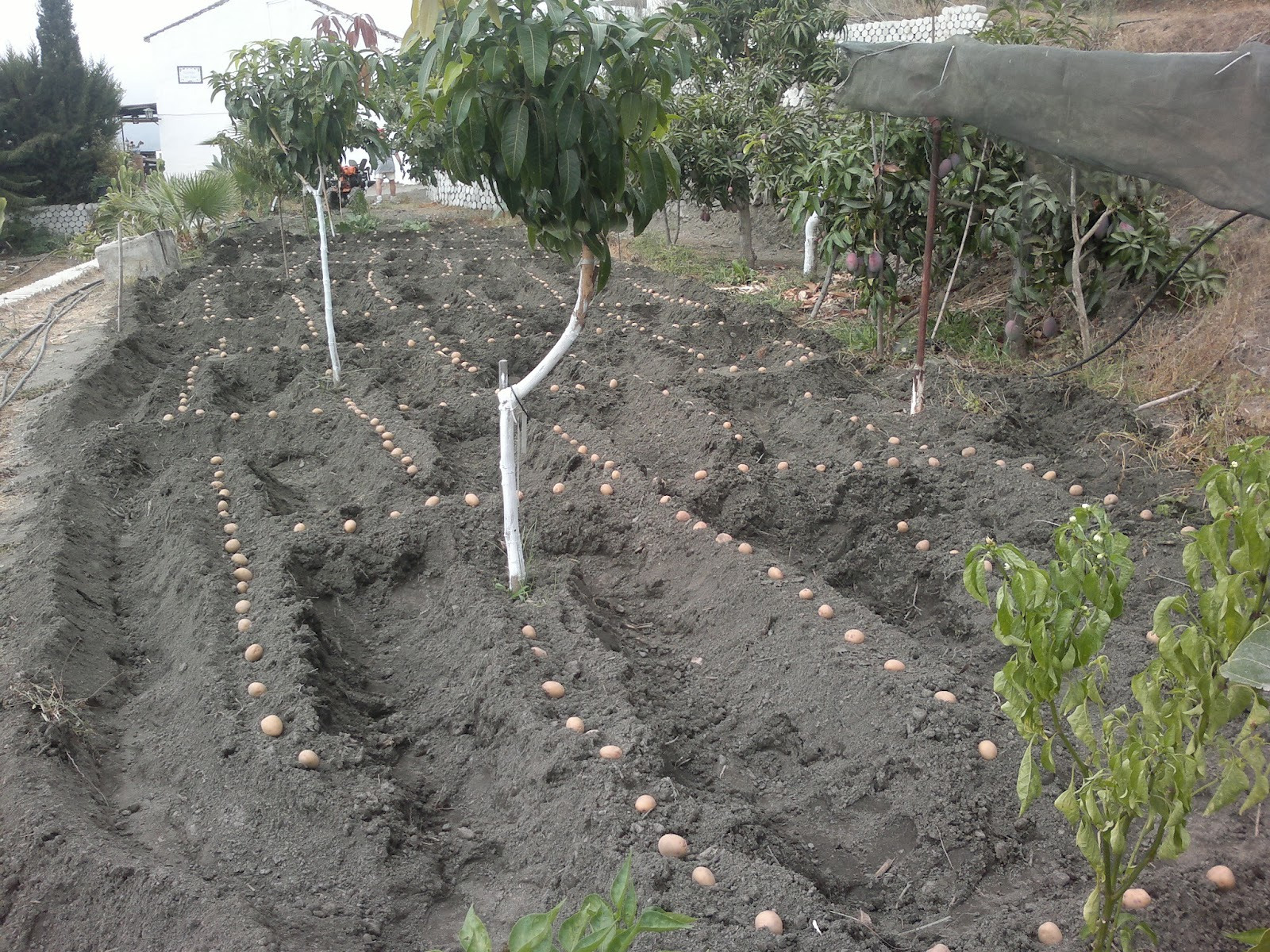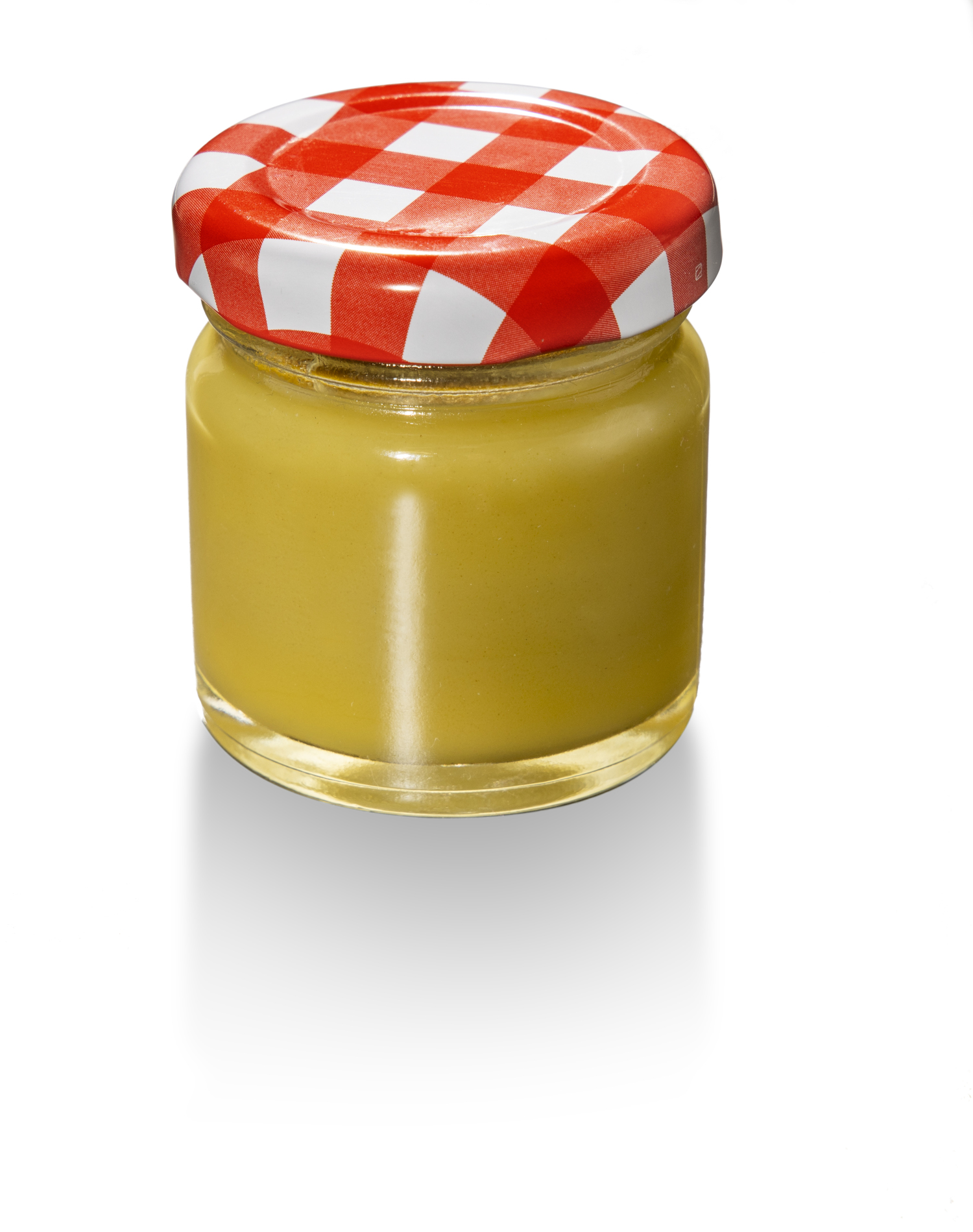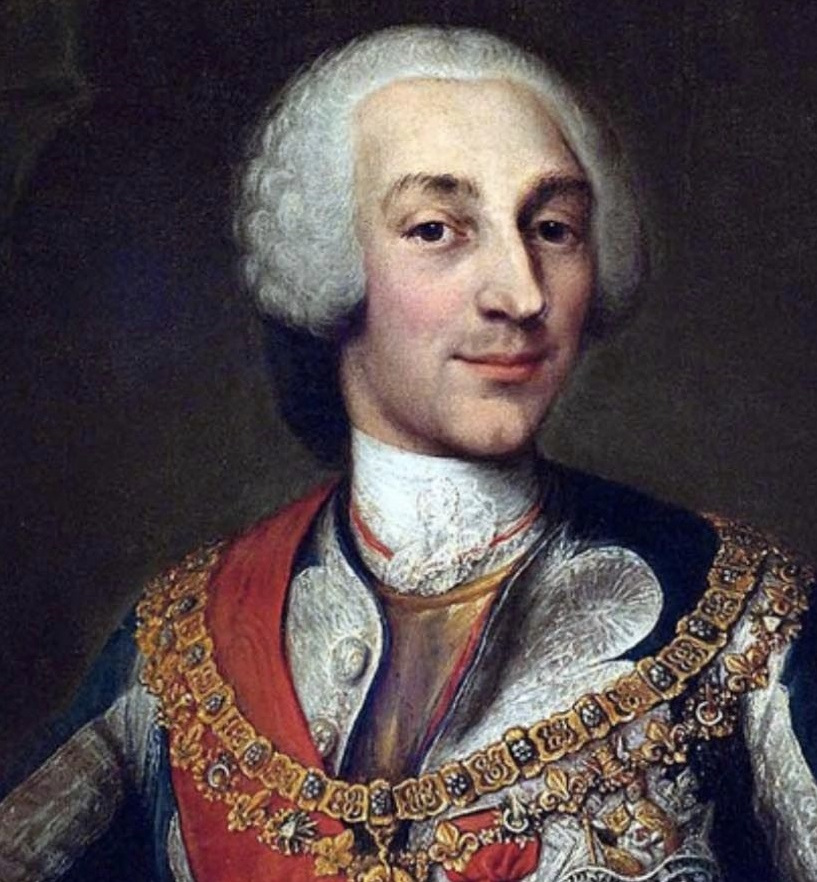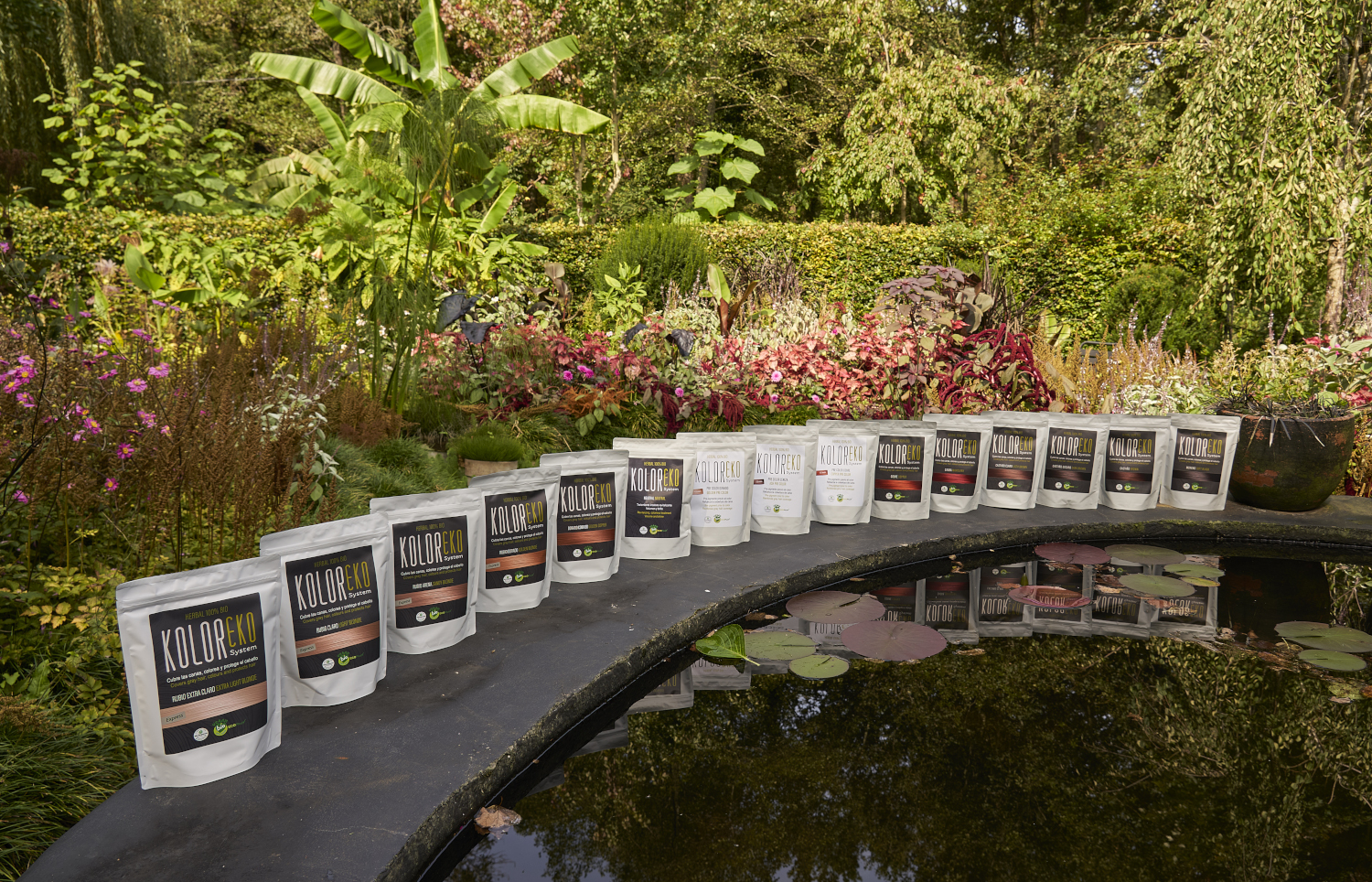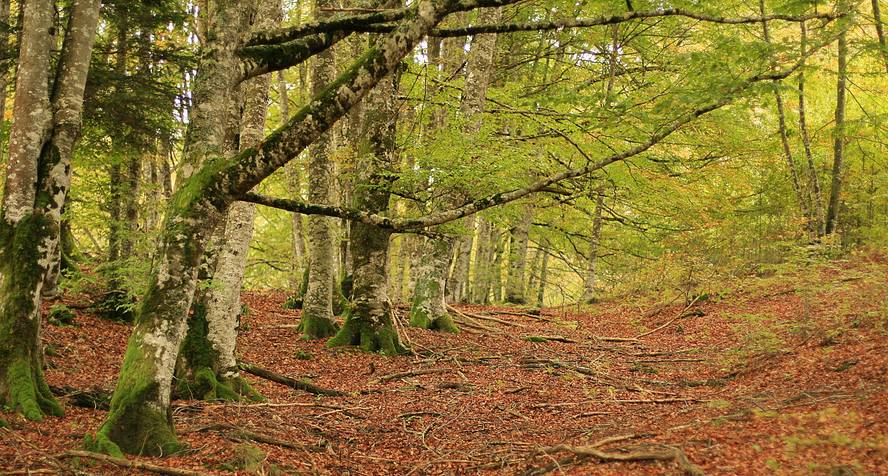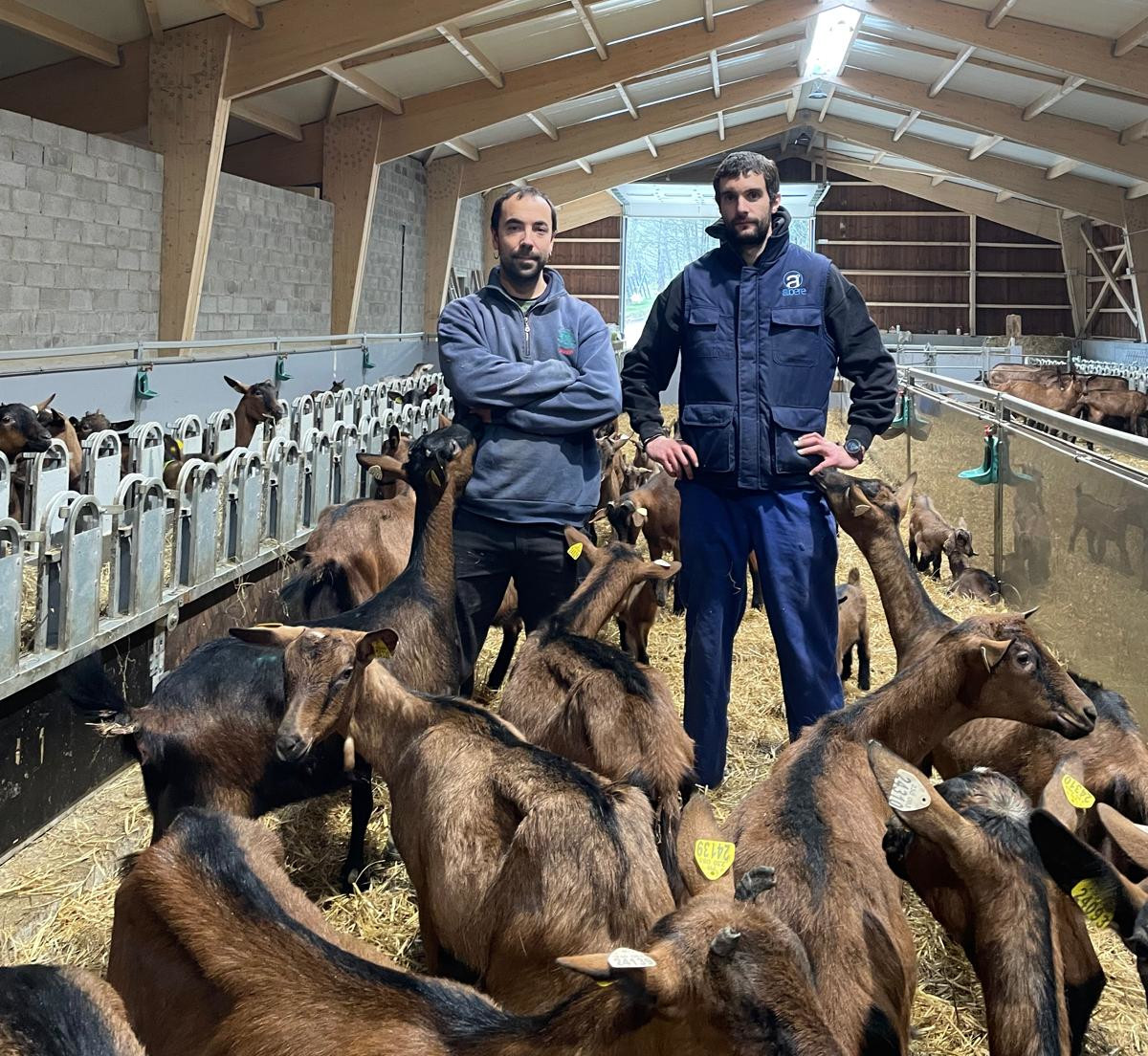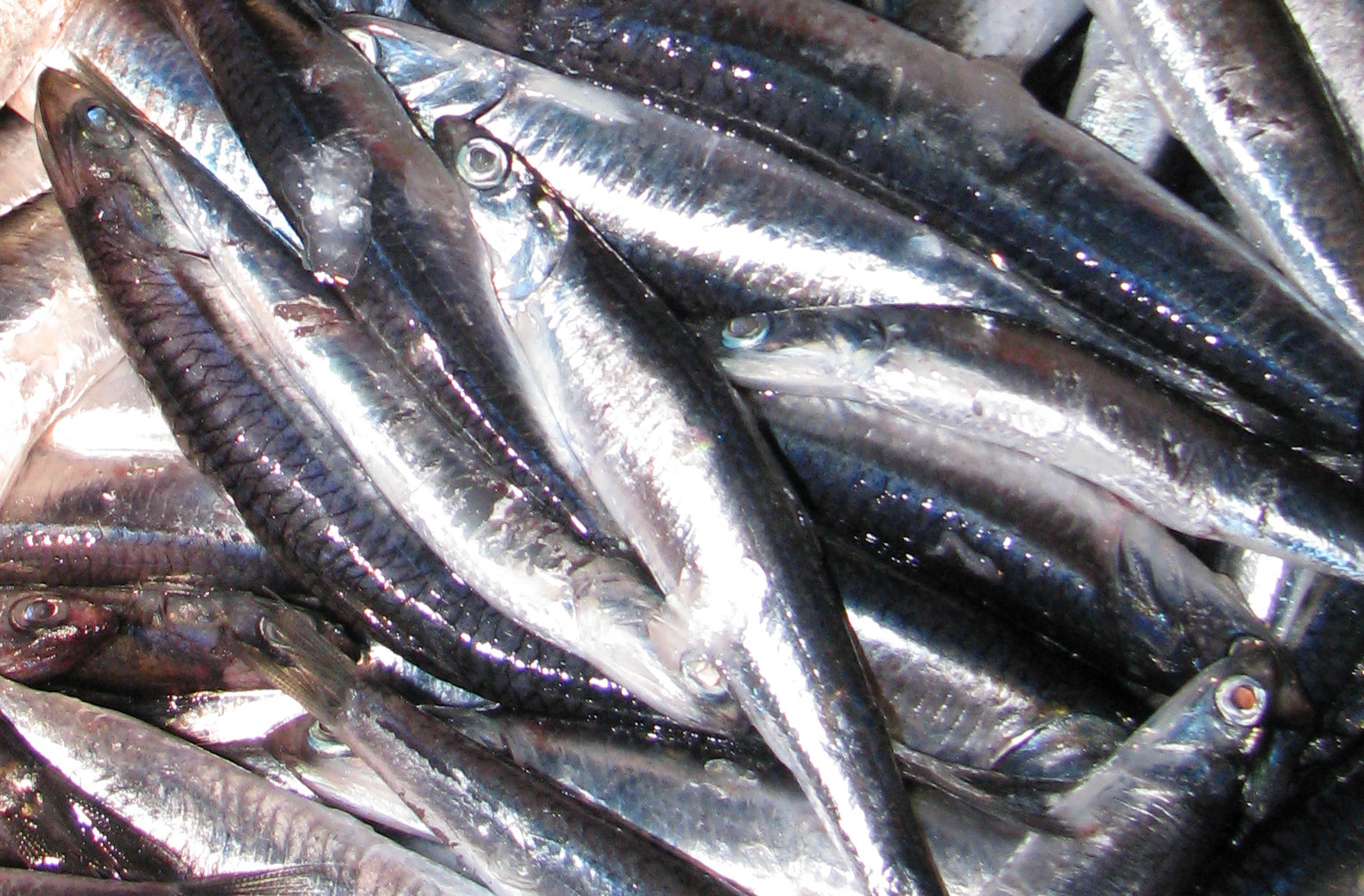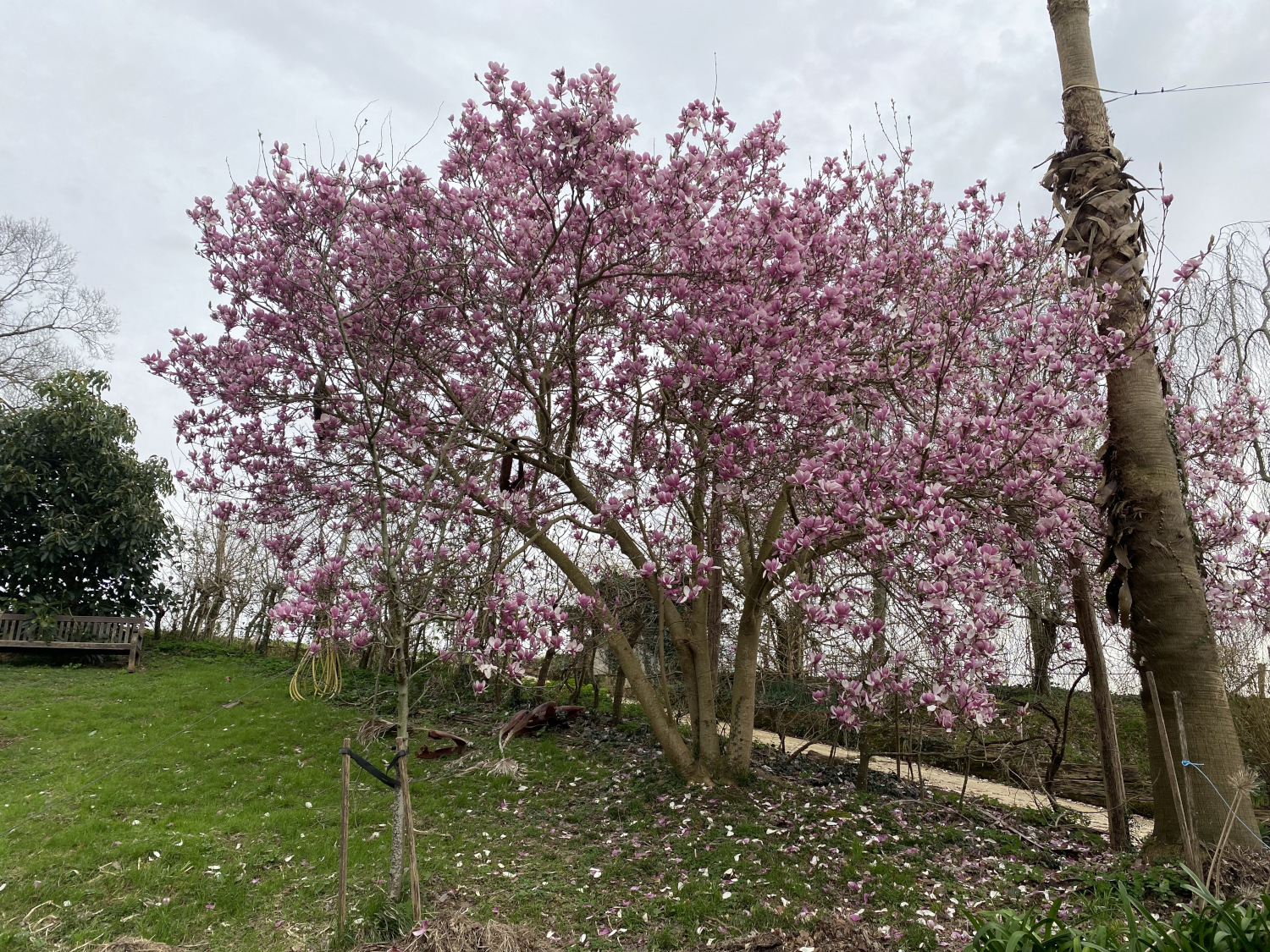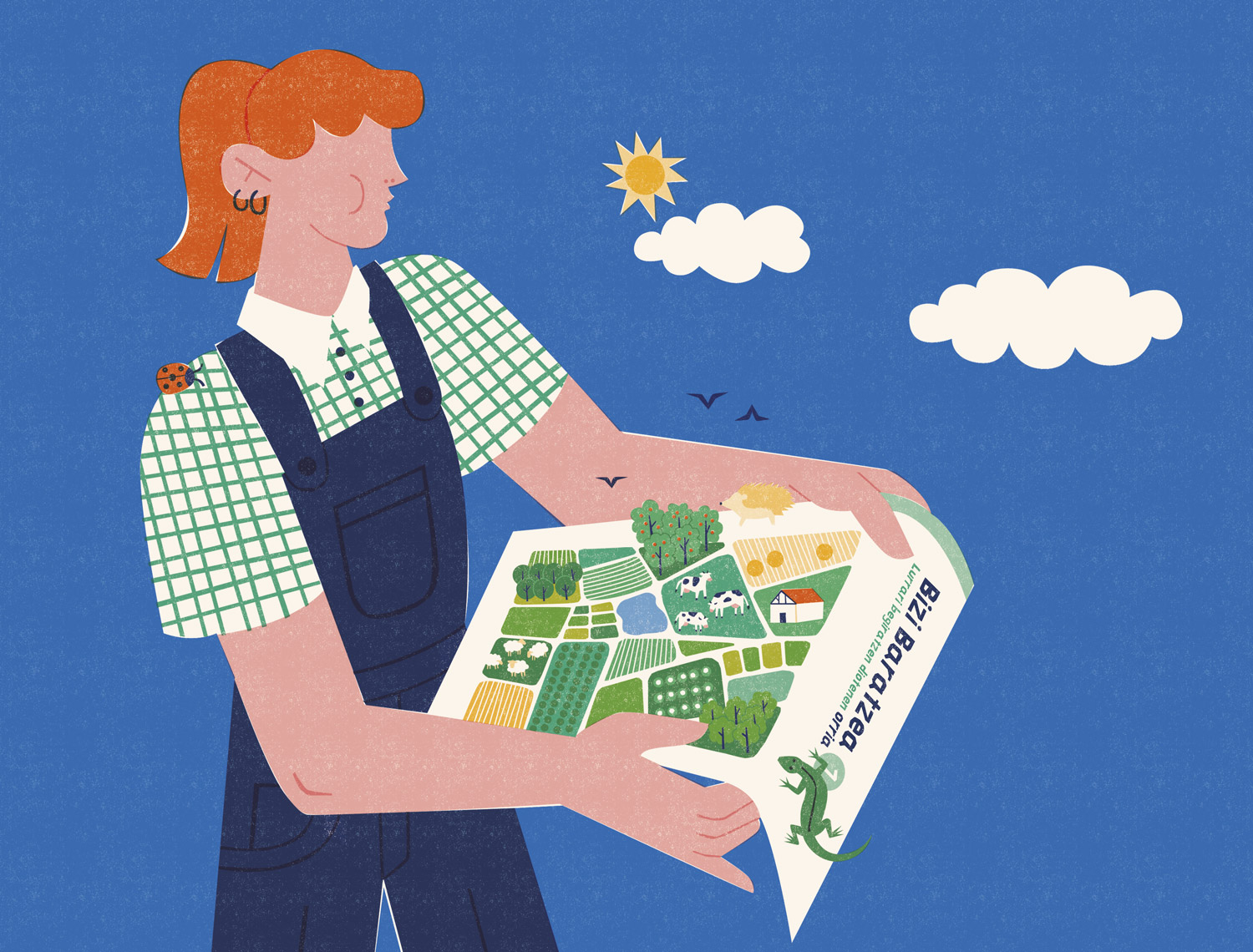“Medicinal plants know this, we are the least we know about them”
- Garbiñe Larrea has just published with ARGIA the book "What Medicinal Plants Know". We've come to him with the current battery of concerns and we've come back with a rich vision, with questions about our way of life.
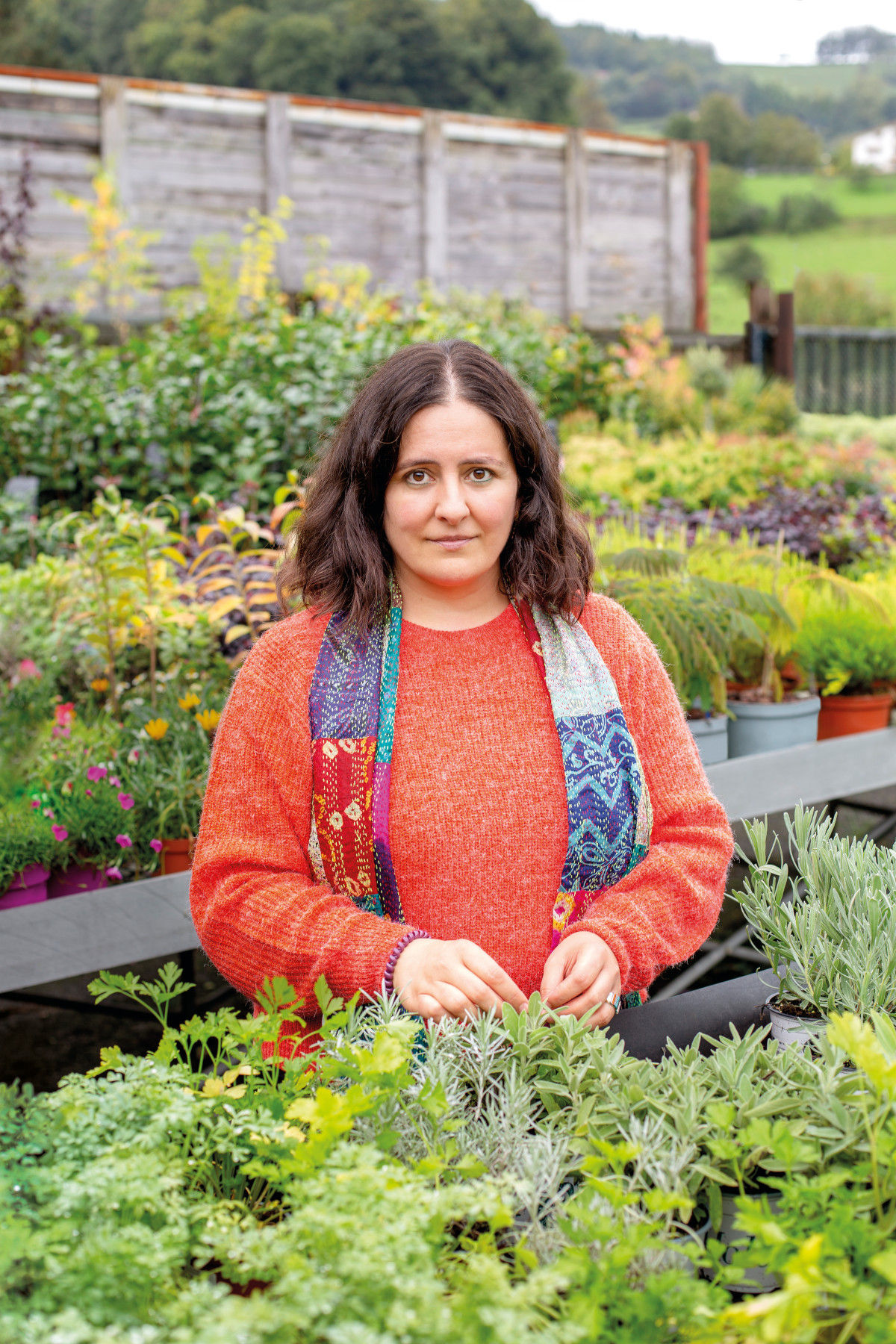
What medicinal plants do you identify with and what relationship have you had with medicinal plants in your bio?
I don't identify with a single medicinal plant. The medicinal plants we like change in life. Now I like some, then I have to see which ones.
I am from Urnieta and work in the naturopathy consultation: diagnosis with iridiology, study of the person's situation and treatment. In recent years I have taught courses on medicinal plants and natural cosmetics. It's been a journey without thinking: starting to do a handful, that a friend proposed to me that I was going to organize the course, and without expecting from there came the demand of people, who wanted to make a syrup or a tincture -- it's largely been the path traveled by people's needs.
My path has been the same: in class students I had other intentions, I studied Law but at age 24 I was chronic and I found a disease that needed help and I started looking for something else. I needed a means to live better and not have to take so many drugs. I gradually went without noticing, learning, training... Life has brought me to this path, it's not what I decide.
Full video interview:
You've already learned Ayurveda. Why is it good for you?
Ayurveda is traditional Indian medicine. Traditional medicines are many, Chinese, European... In India, Ayurveda is highly appreciated and has known, cultivated and preserved its tradition. There is English and Indian medicine, and studies are official. In Europe there have been various traditions, and each state has approached the subject differently: for example, in Germany there is a figure called Heilpractier, a naturopath with official studies. In the rest of Europe there is no possibility of doing so.
So, Ayurveda is not the only traditional medicine, it's one more, but I particularly liked its vision. At first I felt how difficult this is: which plant each person needs, when, how long -- at other times I didn't see that degree of precision. Many times I wanted to leave and resign myself. But his fundamental question is, "And why do you think this is simple?" We stress because we think there's a plant that serves us all, a treatment for everyone -- and it doesn't.
I share this approach: you have to know your environment, because it's your drug. From there you have to take care of yourself. Green marketing requires breaking the ideas it has created: breaking the fascination for bringing the best medicinal plants from the outside.

He has called what medicinal plants know. Do medicinal plants know this or are they?
I think you know that. We are the ones who still do not know so much about medicinal plants. Botany has done a great job in previous centuries and today. In phytotherapy there are still many lines of research. But we despise plants. “Living like a vegetable” is a bad thing, but we do not know how the plant lives, what capacities a plant has, what it has faced... Many of the plant's mechanisms, many skills, remain unknown. And the more I understand this, the more I'm surprised by the level of intelligence and wisdom that plants have. Plants have a lot of capabilities that are not ours, and we have a hard time accepting them. Medicinal plants know this, and we still don't know what they know.
There are two extremes: “It’s a simple superstition, medicinal plants don’t cure,” and “as they are natural everything has good, they can’t do harm.” What would you say to each of them?
Laboa's song says, "No fascination." If there's glare, it doesn't look good, it creates blindness. As far as plants are concerned, it can cause some negative aspects or toxicology not to be seen, so I do not want to be fascinated. This removes precision, rigor and adds many potential risks.
Total denial doesn't make sense either. Looking at any pharmacy, the imagination is not about pills, it's about medicinal plants. According to Eneko Landaburu, they are grandparents of the pills: the pills contain synthesized ingredients and are made from the medicinal plant in a very high percentage. Therefore, to deny it is not to recognise the European pharmacopoeia, as it has been done from medicinal plants.
What do Medicine lose and alternative avenues behind its back?
In recent years there has been an attempt at integrative medicine and there is an association that promotes it. I think that's the way. The World Health Organization (WHO) itself has pointed out that popular traditional medicines must unite in public systems. It's done in different places around the world. In a Tibetan public hospital you have two windows and each one chooses the type of medicine they want to receive, as you can work with phytotherapy. The road to integration is essential and the attitude must be on two sides in search of complementarity. The more hostility and the more extreme, the worse, because we lose the ability to deliver a full health service.

45 plants have a file in the book. Why those 45?
Their choice has been difficult. I have used several criteria: the first, to have it by hand, that is, there are some that can be bought and others that have to be found. They are the ones around us, some very common and others less common, that I've put to regain knowledge.
It is an important criterion for me not to put those who are about to get lost. I have also looked at using little of the root, because that requires the plant to be removed.
I have also put some plants that we have caught, that have stayed with us, but I have tried not to put the medicinal plants that come from outside in recent years. I am not against, on the contrary, we have to know them, use them, but knowing what we are doing and above all without displacement: if to bring from the outside is a way to reject our own, I have to claim our own. I'm sorry, people don't know the image of the pasm weed, but Echinacea purpurpurpurpura is known to everyone and that's a consequence of marketing.
In the book, each plant has "Eye!" Paragraph 2, dedicated to lateral damage.
Due to the fascination with medicinal plants, I prefer to take aspirin than the infusion of some herbs. It's natural, but it's not always good. To what extent, who and how to take it can be very dangerous. Especially if there is a chronic disease and you are taking a drug for a lifetime or a super... there are interactions, and the medicinal herb can reduce or double the effect of the drug! And that information is nowhere in the books of medicinal plants, let alone on the Internet. I do not think that disclosure is really serious if that is not mentioned.
Her aunt had a garden of medicinal herbs...
In Elduain, our father's aunt, Anita Egues, had a vegetable garden to eat and a vegetable garden to heal. And it wasn't four medicinal plants placed on the edges of the vegetable garden to eat. It was another vegetable garden in which the plants suitable for the needs of the body in the respiratory tract, in the plates... He had them at his fingertips and took care of them.
We can be both producers and consumers, and with medicinal plants the same thing. It does not take away, if I have or am not able to do so at any given time, or if this use has limitations, I need professional support. I don't want to give a picture of total self-management.

How do you experience the pandemic?
The issue of the pandemic has been, at first, an amazing thing. Those things that were going on in the movies -- I've lived it like any other, at first with a stress point, an amazing point, and then with a pandemic tiredness.
It happened to me, when I started caring for people, in front of me, every month I changed my mind. With each passing COVID-19, I was learning something new. We've been treating pneumonia, also respiratory diseases. But here was something else, much deeper and going further. A pneumonia has been the cause of disability, of subsequent complications, yes, but not of those we've seen. It is clear to me that we were not prepared and that we had to learn according to the needs of the people. The existence of thrombosis, thyroid disease, persistent COVID-19 or unable to get out of bed after a reinfection... everything has been new, and it has to be said that we have worked as much as possible in lack of resources, lack of knowledge, loss of knowledge.
Since you know the medicinal plants, do you have any clues, questions, or contributions to the pandemic?
First of all, in the last two years, medicinal plants of the respiratory tract are growing and being born a lot among us. That is what we have to look at. The pulmonary grass, the cough herb, the plant -- for me there's a sort of synchrony.
There is not a single medicinal plant to be able to say “this is the best”, and I think you have to flee there, because there are no medicinal plants valid for everyone, the needs of each are different. With COVID-19, there are people who have fallen ill from the guts and not from the airways. Therefore, a respiratory tract plant will not help you. You have to have a broader view and know the different needs.
When there has been a great infection, they have helped the words and passionals that we have always used here. But these herbs are strong, you have to take them in size and they have many adverse effects. We must therefore know them. Its use has favored its use, but also the use of other medicinal plants after the disease: if there are medicinal plants to strengthen the immune system, this improvement is not achieved in a week, or if there are herbs to improve the circulation and we have needed a lot because people have fallen ill from the veins.
Some of the critical health professionals report that they are afraid of harassment, that they are not free to say what they think.
To begin with, I'd like to say that I didn't want to be in place. In the situation of anguish and fear that we have experienced, the press conferences were given by the military. That is where dissent can be paid for expensive and, of course, it can be serious. These people have to work to live, so they work every day with a different perspective. Because, as you can, with new measures, with new remedies -- we've all needed new resources to deal with it.
I find it enriching that there are different approaches. The more monolithic the discourse is, the more risk we have of making mistakes on any subject.
Given the authoritarianism that has taken place, the oppression that has taken place in many situations, I believe that the work that they have done is necessary, it is also a path that has already been made. Let them follow, because they will enrich the vision. And if you have different ways of working, let's do research as well. That there is will, because we need everything to turn it around. A vision or a line that is always unique can work well, but many people will stay out of it. Even with other diseases, when carried on a single line, many people do not find the answer they need for them there.

We've been putting barriers to a virus and we've resorted little to strengthening the body. Can our body really decrease this disease?
I've seen very strange things in the sick and things I couldn't think in advance. Why has it affected this in this way? Why doesn't this go around? How is this person so bad? And the opposite, how vulnerable it was that the person had gone pretty well -- you have to listen here as well and watch.
The situation has been difficult to bring, because health has not been what has been taken special care of. I believe that in this society, health is not an important value. It is famous, but we lack consistency. I don't think they have to teach us what to do to be healthy, there are a lot of prevention campaigns. But prevention does not have a good reputation, if you take care of yourself you will easily hear that you are “orthorexic”. There's a lot of complacency, for example, with alcohol. Now there are polemics with the alley, but this is an alcoholic society in which alcohol is a real problem. We say “you have to put health in the center”, but when we really start to bring it to everyday life, that means that the hours must be rational, the person cannot finish his job at 19:00, he cannot dine at 22:00... Not everything is food, it is rest, it takes time to exercise, mental health care is no joke... to get to all of that we have to think about how we are living and what we prioritize. We're delegating, as if health professionals had to fix everything, and a lot of things are in lifestyle habits. Changing life habits and giving importance to food, we would turn around many situations. This has been seen with COVID-19, there are many who already had deficiencies and after passing COVID-19 they don't go around. Why did they have these shortcomings?
At ARGIA, we like pride. Does the drug business need to create dependency?
Business by definition needs customer and the customer needs to create the need and if there is no need to invent it. If you look at any healthcare approach as a business, you need customer loyalty. This often comes from the chronicity of the disease.
There is also green marketing and we are the victims of it, very clearly. They create needs for us. There are so many people who are taking supplements and do not need them on their own. Nobody has told you that you would have to do an analysis to see first if you have a shortage and then supplement. And this supplement comes almost always from food, or from medicinal plants. Why not develop a critical view and see what degree of autonomy can we have?
With the book, I wanted to give people autonomy. And I learned this from hygienists. Eneko Landaburu, Karmelo Bizkarra... suggest that they can self-manage health. Knowing how to listen to yourself, seeing what you need, seeing what weaknesses you have and seeing how you can do it yourself in favor of mejora.Para emergency
situations, such as fever, the key is to have resources. In the book I have tried to provide resources and I am comfortable with the level of safety, effectiveness and rigor that I have brought to the book, because I do not like Ethereal things: When I read “it’s good for hormones” I get nervous. What hormone? From whom? For how long? It requires a high degree of precision.
I have also made this book from the perspective of women, to provide us with resources for us. That drug dependence is not the only option in the stages around us or in life. We have to have other options.
Is emancipation scary? What should we delegate to health and what should we not?
The delegation is also natural. If a person has spent six years studying Medicine and other years taking out the MIR and sacrificing much of their youth to offer it to others, that needs respect, and there is nothing in common. If you have an eye condition, we will stay short with medicinal plants. And there are many chronic diseases that need medicine. For me, going to the doctor is very natural and necessary.
It is very important to be clear what each one’s role is. When we had a sore throat and angina, in our house it seemed embarrassing to go to the doctor, because we could put a poultice on. You have to distinguish to what extent you are able to take care of yourself and when you should go to ask for help.

I have read you that it is time to act more radical in food...
Many times I see a very distorted approach to food: I'm going to feed myself the way I want, no matter how those foods have been produced, where, what's behind them -- all of that I put aside, and then when I have a problem, it will fix me a pill. If the red pill doesn't fix it for me, the green pill fixes it for me. And health is completely delegated.
But to worry is to look at what we're eating, how it's produced. Ecologists are usually right, but they are given after 20-30 years. Ekologistak Martxan has been saying for years the levels of pollution we have in both cosmetics and food: fruits and vegetables, for example, and we eat calmly and we do not realize that we live in a cocktail or a chemical broth. Then the disease looks like a curse: how many hypothyroidism, how many allergies, how many autoimmune diseases there are, and we don't realize that that's related to lifestyle and eating...
I have said this to many: "I can't help you if you haven't changed the way you eat, if you can't see the importance of it." If every year we spend less money, I don't want to drink green juices later, make a detox, then I'll go back to tox! Or eat rice for ten days and go to the syrup on the eleventh day. Instead of moving through these extremes, leave the body alone.
It is eaten every day, three times, although now intermittent fasting is very fashionable. But it's really cool, not taking into account what you eat afterwards. If we eat the slightest bread and the worst, we should not be surprised by the consequences. Here are permanent pandemics, and one is diabetes. The number of people I see from the age of 40 taking the tension pill first, then sugar and cholesterol -- it's a metabolic syndrome that's totally related to what we've eaten and drunk in previous years. You can't look the other way there. When COVID-19 has suffered a significant viral load, these people have been very ill. The key is what life options we make. And of course, the level of stress we have, the level of rest, and often they're not situations of free choice.
This book highlights the absence of other books: the body of women. What do you think about the binomial medicine and the female body?
When there has been pain in the center, menstrual pain, or hard ailments such as endometriosis, it has not been properly investigated: it has been treated with analgesia and it is clear that women with these ailments are much more directed to psychiatry. The lack of knowledge and resources is evident.
Exposure to the hormonal cycle has a meaning and medicinal plants affect us differently. It is essential to take this into account. Regardless of your age, your previous ailments... we're not doing it right.
It disseminates knowledge about medicinal plants that have traditionally been transmitted by women. It comes to my mind when they burned witches.
We are collegiate naturalists, but we are fighting for these studies to be official and to be a recognized trade. For me, witch hunting is always there. And there will always be a class and a class of people who don't like anything. Health is a monopoly and the law makes it this way: those who have studied official universities are the ones who can dedicate themselves to health, there is a complaint that others are almost always intrusive. It is our work that is carried out at the marginal level. At the same time, it has a large volume and economic presence.
On medicinal plants, many have told me “Garbiñe, that sinned”, and to see how I would dare to teach it to another or to make it public. I've spent more than once lifting up what I was with, closing the kitchen door and then telling me how it does. Neither the Enlightenment, nor the Church, nor the health stratum ended this, but this marginalization has taken place with the psychological, personal, emotional connotations that, in case of chance, we do not want to go to the public square. Many have this very clear attitude, because in their day they had risks, so they want to be careful.

ENF. HEALTH
"Health... is a thing that can be lost
at any time. In our house, as the mother says, “all of them are for us.” I mean, all of these diseases are within our reach. This continuous state of health is an impossible ideal: society wants youth, form and health, but that is not a continuous thing, it can be lost at any time; doing harm is very easy, getting sick is very easy...
Health, integrity... is a very valuable thing. No matter how much money the person has, what beauty, what youth, with a lot of despair, I see those who have everything else but not health, and therefore are not able to enjoy everything else. Health is a basis for living well."
"The
disease... is not appetizing, nobody wants it. It is important to relativize the disease as weakness, vulnerability, dependence many times... knowing how to be sick. Being a good patient is not anything.
Adaptation to the disease helps. Sometimes there is no other remedy, you have to live with a chronic disease. To take it as best as possible, to maintain a quality of life, to be able to develop as a person, is possible. You don't have to see it as an absolute loss, here humility is mandatory. A conviction provides people with the resources to develop and improve themselves as a person."

BOOK WHAT MEDICINAL PLANTS KNOW
In this book you will find detailed information to know the properties of 45 medicinal plants and use them for health benefit. It provides explanations to perform with autonomy ointments, tinctures, infusions, etc. The aim of this book is to deepen the knowledge of medicinal plants, to share what has been learned and received, to make new contributions, to know their toxicity and their side effects and, above all, to acquire practical knowledge that will help us to enrich our daily life.
Pages: 280 pages
Price: EUR 25
TALK ABOUT MEDICINAL PLANTS IN YOUR TOWN
Do you want a talk to your people based on the book Garbiñe Larrea Sendabelar what you know? Write to us bizibaratzea@bizibaratzea.eus
Udaberrian orain dela egun gutxi sartu gara eta intxaurrondoa dut maisu. Lasai sentitzen dut, konfiantzaz, bere prozesuan, ziklo berria hasten. Plan eta ohitura berriak hartu ditut apirilean, sasoitu naiz, bizitzan proiektu berriei heltzeko konfiantzaz, indarrez, sormen eta... [+]
Ohe beroan edo hotzean egiten da hobeto lo? Nik zalantzarik ez daukat: hotzean. Landare jaioberriek bero punttu bat nahiago dute, ordea. Udaberriko ekinozio garai hau aproposa da udako eta udazkeneko mokadu goxoak emango dizkiguten landareen haziak ereiteko.
Duela lau urte abiatu zuten Azpeitian Enkarguk proiektua, Udalaren, Urkome Landa Garapen Elkartearen eta Azpeitiako eta Gipuzkoako merkatari txikien elkarteen artean. “Orain proiektua bigarren fasera eraman dugu, eta Azkoitian sortu dugu antzeko egitasmoa, bere izenarekin:... [+]
Itsasoan badira landareen itxura izan arren animalia harrapari diren izaki eder batzuk: anemonak. Kantauri itsasoan hainbat anemona espezie ditugun arren, bada bat, guztien artean bereziki erraz atzemateko aukera eskaintzen diguna: itsas-tomatea.
Aurten "Israel Premier Tech" txirrindularitza talde israeldarra ez da Lizarraldeko Miguel Indurain Sari Nagusia lasterketara etorriko. Berri ona da hori Palestinaren askapenaren alde gaudenontzat eta munstro sionistarekin harreman oro etetea nahi dugunontzat, izan... [+]
Sare sozialen kontra hitz egitea ondo dago, beno, nire inguruan ondo ikusia bezala dago sare sozialek dakartzaten kalteez eta txarkeriez aritzea; progre gelditzen da bat horrela jardunda, baina gaur alde hitz egin nahi dut. Ez ni optimista digitala nauzuelako, baizik eta sare... [+]
Bada Borda bat ilargian. Bai, bai, Borda izeneko krater bat badu ilargiak; talka krater edo astroblema bat da, ilargiaren ageriko aldean dago eta bere koordenadak 25º12’S 46º31’E dira; inguruan 11 krater satelite ditu. Akizen jaiotako Jean Charles Borda de... [+]
Donostiako Amara auzoko Izko ileapaindegi ekologikoak 40 urte bete berri ditu. Familia-enpresa txikia da, eta hasieratik izan zuten sortzaileek ile-apainketan erabiltzen ziren produktuekiko kezka. “Erabiltzaileen azalarentzat oso bortzitzak dira produktu gehienak, baina... [+]
Ugaztunei eskainitako azken artikuluaren amaierako hitzak hurrengo animalia aurkezteko aitzakia paregabea dira. Bertan esaten genuen muturluzeak erreka “garbi eta txukunak” behar dituela, kutsadurarik gabeak baina elementu natural anitzekin. Animalia txiki horren... [+]
Mila milioika mintzo dira agintariak. CO2 isurketak konpentsatzeko neurri eraginkor gisa aurkeztuta, zuhaitz landaketei buruzko zifra alimaleak entzuten dira azken urteetan. Trantsiziorako bide interesgarria izan zitekeen, orain arteko oihanak zainduta eta bioaniztasuna... [+]
Kutsatzaile kimiko toxikoak hauteman dituzte Iratiko oihaneko liken eta goroldioetan. Ikerketan ondorioztatu dute kutsatzaile horietako batzuk inguruko hiriguneetatik iristen direla, beste batzuk nekazaritzan egiten diren erreketetatik, eta, azkenik, beste batzuk duela zenbait... [+]
Ubidekoak (Bizkaia) dira Imanol Iturriotz eta Aritz Bengoa gazteak. “Lagunak gara txikitatik, eta beti izan dugu buruan abeltzaintza proiektu bat martxan jartzeko ideia”, azaldu du Iturriotzek. Nekazaritzari lotutako ikasketak izan ez arren, baserri munduarekin eta... [+]
Antxoa, bokarta edo albokartia, gure arrain komertzialen artean txikiena, euskal kostaldera hurbildu da.
Magnoliak eleganteak dira. Dotoreak. Anddereak. Pontxoak. Apainak. Pimentak. Gurbilak. Ponposak, ponpoxearrenak. Ortiroak. Ia-ia fazazkoak, kriket eta kraket. Ez naiz harritzen, beren loraldien azpian lurrarekin urtzerainoko handitasunaren menpeko sentitzen naiz urtero.
Gaur abiatu da Bizi Baratzea Orrian kide egiteko kanpaina. Urtaro bakoitzean kaleratuko den aldizkari berezi honek Lurrari buruzko jakintza praktikoa eta gaurkotasuneko gaiak jorratuko ditu, formato oso berezian: poster handi bat izango du ardatz eta tolestu ahala beste... [+]







